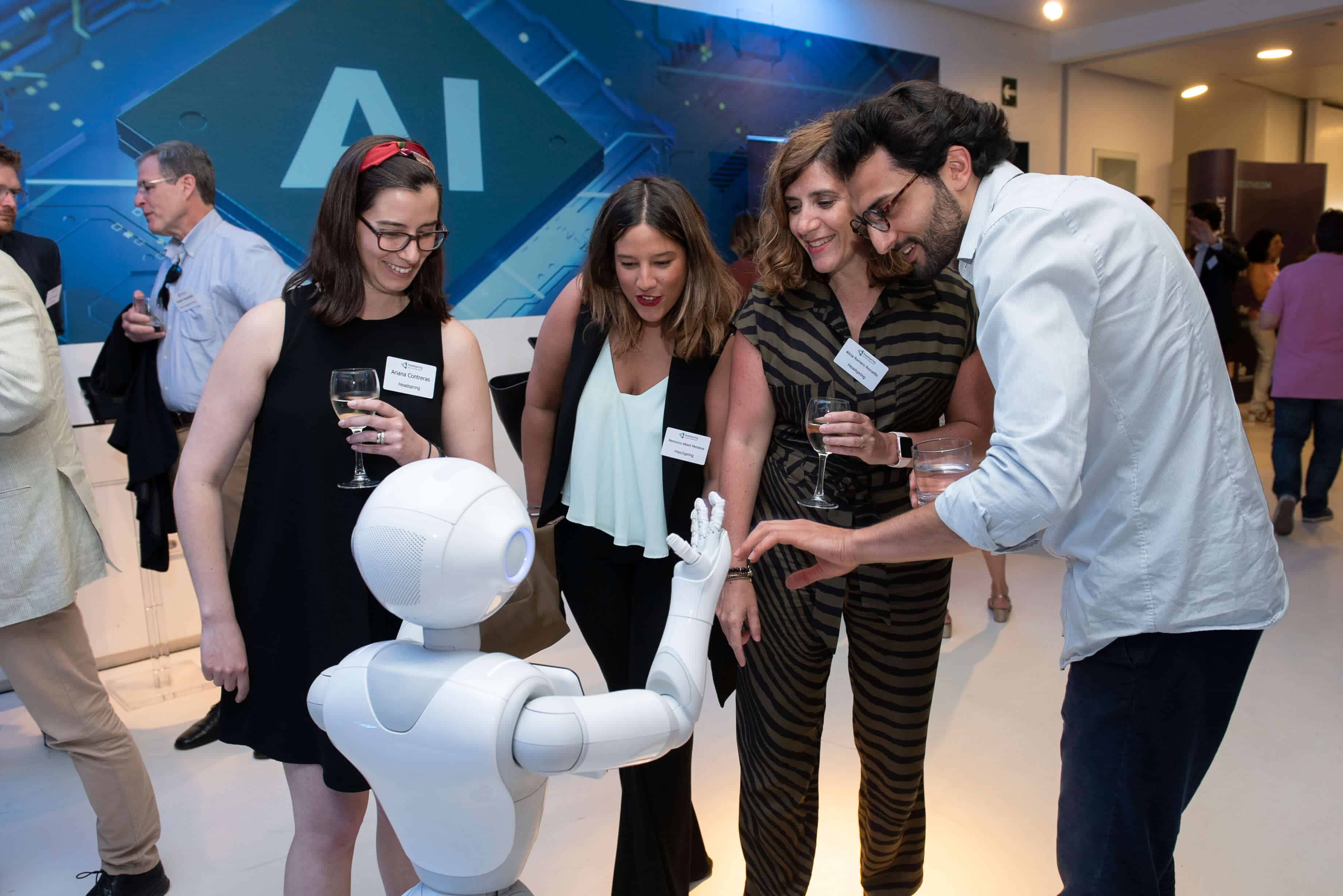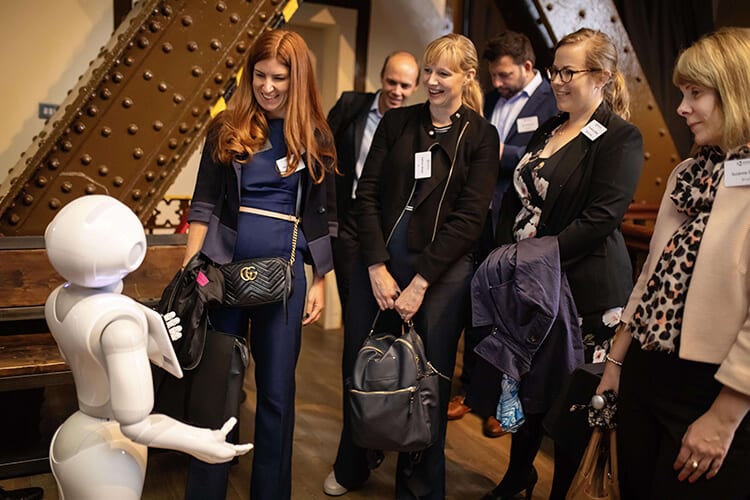The AI Conundrum – Threat or Challenge? Ten Implications for HR and L&D
Both Denmark and Sweden are currently pursuing national artificial intelligence (AI) strategies. In these countries, millennials are particularly positive about AI complementing and improving their work.
In Germany, as yet, some 75% of professionals don’t use AI and only 18% feel prepared to use this technology in the next year. Of all European chief executive officers (CEOs), CEOs in Germany are the least engaged with the concept of AI and the least enthusiastic about its potential impact.
By contrast, some 84% of professionals in France use or feel prepared to use AI within the next 12 months. Moreover, French professionals share a positive view of job security as a result of introducing and using AI.
Spanish professionals believe that AI will make their work more efficient and of better quality, yet only 17 per cent think that these improvements will translate into improved job opportunities. In the UK, professionals tend to see their organisation and themselves as ‘unprepared’ to adopt AI – and are generally wary of trusting decisions made via AI.
Chief executives in the United Arab Emirates (UAE) are unique among CEOs in seeing business development as the best potential benefit of AI. Professionals in the UAE are displaying high levels of belief in the value and potential benefits of AI – even though there are also expectations of AI-driven job redundancy.
These are just some of the key results of a recent survey commissioned by Headspring, the executive education specialist – a joint venture of the Financial Times and IE Business School – and carried out in partnership with YouGov. The survey examined how professionals in Europe and the United Arab Emirates (UAE) understand that AI will affect the workplace. The survey represents the views of some 4,515 people, working in a range of industries, in the UK, Sweden, Denmark, France, Germany, Spain and the UAE.
Commenting on AI, Gustaf Nordbäck, Headspring’s CEO, said, “AI, as formal field of study, may have existed since the 1950s – when, at a workshop held on the Dartmouth College campus in the USA, in 1956, MIT cognitive scientist, Marvin Minsky, claimed that, ‘Within a generation… the problem of creating ‘artificial intelligence’ will substantially be solved’ – but the notion of autonomous machines has been a part of human consciousness since the early Greek civilisation. Mythic automatons, such as Talos, saw humans projecting our living intelligence onto robots and it’s a theme that’s flourished in science fiction writing since the 19th century.”

AI implications for HR and L&D professionals
It’s becoming increasingly obvious – in any industry and at any job-level – that AI’s influence and use is continuing to grow. That has many implications for the corporate world and, especially, for HR and L&D professionals.
Notably, the results of the Headspring/ YouGov survey illustrate that:
- HR and learning and development (L&D) professionals are far from immune to AI’s effects and implications – in terms of jobs, skills development and so on.
- Employees need to feel safe and understand more about AI so that they can maintain higher motivation and morale
- Employees at all levels of the organisation also need to feel confident in engaging with this new technology.
- The workforce’s appetite for learning about, and engaging with, AI appears high.
- Investing in new technology and infrastructure requires a bolstering of technical know-how and upskilling in ‘hard’ areas of aptitude.
- However, it’s the softer areas of resource management that also need attention.
- Success in AI’s implementation will depend on the management of employee expectations and confidence in the value of transition.
- HR/ L&D professionals need to provide workers with enhanced internal communication to manage any potential negative perceptions from the adoption of AI.
- In addition to internal communication, AI’s adoption provides a need for upgraded investment in people and L&D activities.
- Implementing processes to manage ethics around AI are also a priority.
Change management, not IT
Some senior HR/ L&D professionals, including Headspring’s Global Head of Learning and Innovation, Liz-Ann Gayle; Jessica Brook, Senior People Scientist at Culture Amp; Jonquil Hackenberg, Managing Partner at Infosys’ C-Suite Advisory Practice, and Joanne Peplow, Head of Capgemini’s UK AI Centre of Excellence, believe that AI is focused around change management rather than IT. This means that, for HR/ L&D professionals, AI can take away their administrative burden and also arm them with the data they need to make the decisions that will enable them to become a genuine partner to their organisation.
In other words, AI will radically change the HR/ L&D function in a positive way. So, AI should be seen as an opportunity for HR/ L&D, not a threat.
For further details of the Headspring AI Survey, contact Headspring’s Thiago Kiwi (t.kiwi@headspringexecutive.com).
